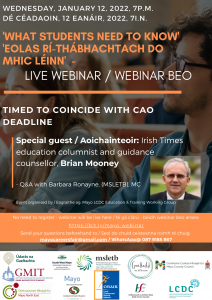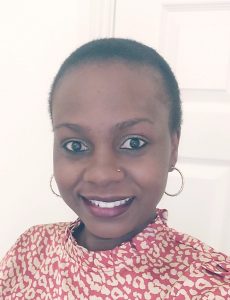So you’re a journalist or broadcaster – what other career options might be available to you?
So, you’re a journalist, or a broadcaster.
Media is in a state of flux with the print sector, in particular, going through difficult times. You may be among the many people finding it difficult to get a permanent contract or find steady work. Or maybe you want a change of scenery and wouldn’t mind branching out into another sector.
Where else can communicators with your skills find work or business opportunities?
Here are some possibilities we have come across:
- Instructional design (yes, I had to check it up too – here’s where I started).
- Charity fund-raiser. I know a number of media people who have made this move. They are attractive in this area because they can write and circulate a press release, create a Facebook community page, organise an event, get people on board, and generally add a touch of professional communications to a fund-raising initiative.
- Public Relations executive – either as an employee, or self-employed. But PR is changing. It is no longer ‘a few pars in the local paper and a piece on the local radio’, invaluable though those inclusions are. Social media is playing an ever-increasing part in PR. PR survives as a profession because, ultimately, businesses have to promote themselves.
- Sports administrator. This is an option for sports journalists, in particular, who have many of the skills needed for administration of sports bodies – and, frequently, intimate knowledge of the sport and its participants, officials, coaches and sponsors.
- Marketing executive. Are you creative? Do ideas tumble from your head? Can you turn concepts into reality? Media people are accustomed to catching attention – they know the importance of a strong intro paragraph. They realise that to get noticed, you must inject some life, quality, cleverness and impact into what you write or broadcast. All of that is a good starting-point if you are interested in getting involved in marketing.
- Career coaching – our business was set up by two people who came from journalism and broadcasting (Liam Horan) and human resource management (Fidelma Wallace). Communications is at the heart of interview training and CV, LinkedIn and application form writing.
- Lecturer – there is an ever-growing range of communications, broadcasting, journalism, social media and other third-level courses out there. Any of these suit your skills?
- Advocate – you can get your point across, you think about what people need to hear to be persuaded of an argument. Advocacy depends on good communication skills.
- Politician – you might be surprised how many journalists, for example, become politicians. TD Ruth Coppinger was a journalism classmate of our MD Liam Horan in the College of Commerce, Rathmines, in the mid 1980s.
- Trainer – again, getting your point across. Helping people to see things. Simplifying concepts so they can be easily understood.
- Life / Executive Coaching – if you care about words, and are able to listen closely to what people are actually saying, and you feel you can feed their thoughts back to them in an effective manner, this could be a route for you.
- Political administration – politics depends on quality communications. If you know what to say, and how to say it, and if you also know what not to say, this might be a field for you.
Have you any other examples? We find ourselves dealing with a lot of communicators and we’d like to make this list as long, yet as useful, as possible.







